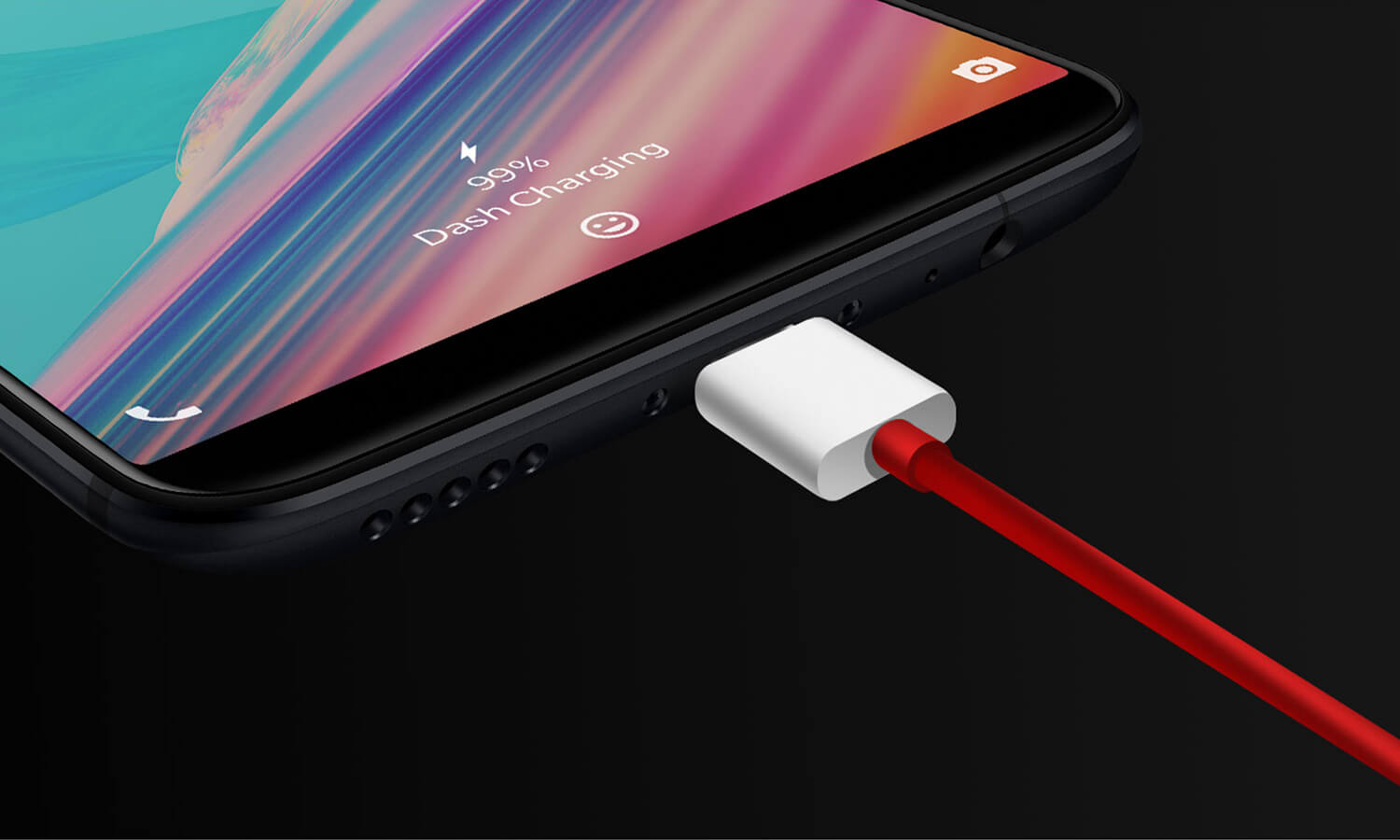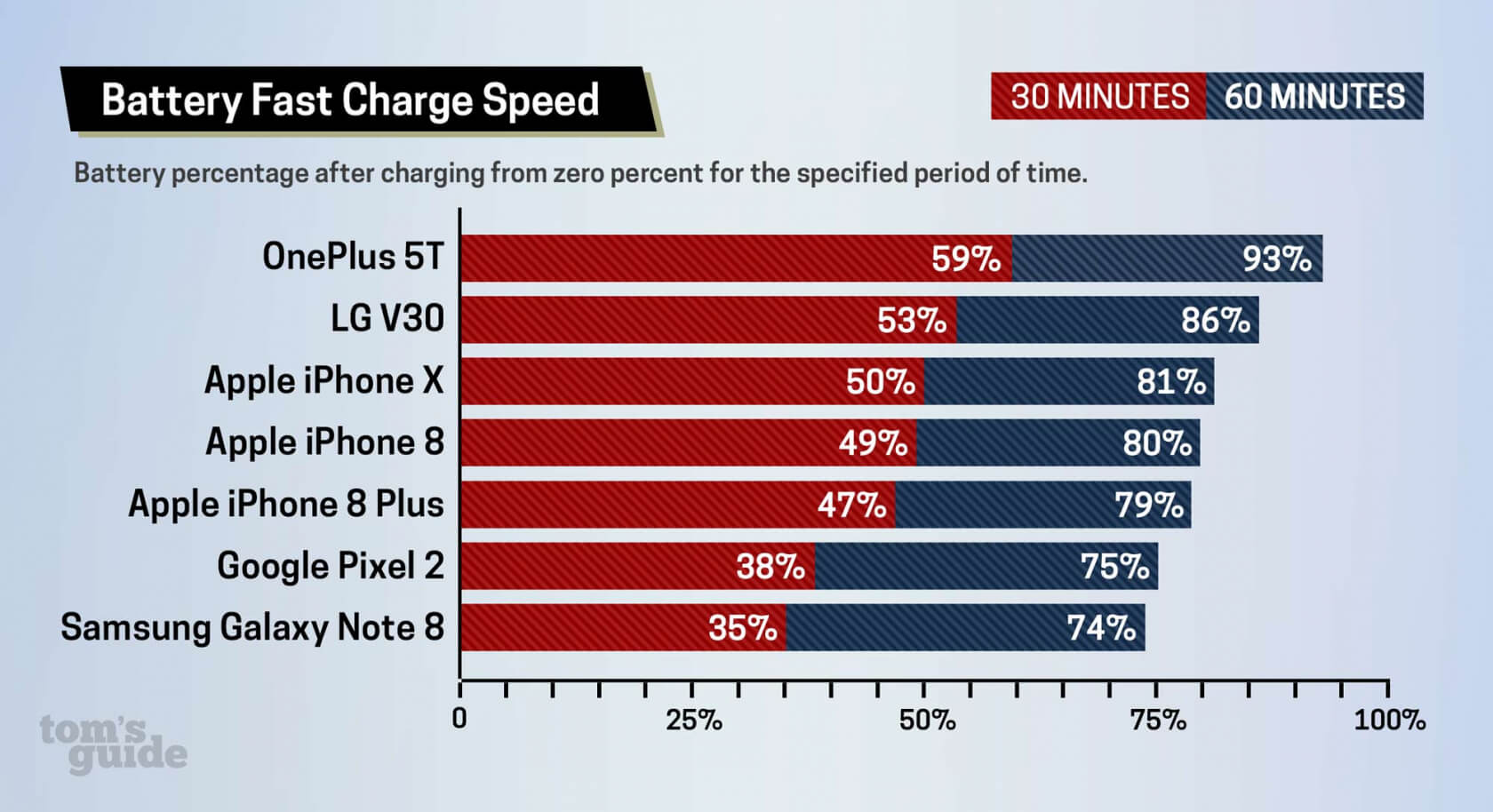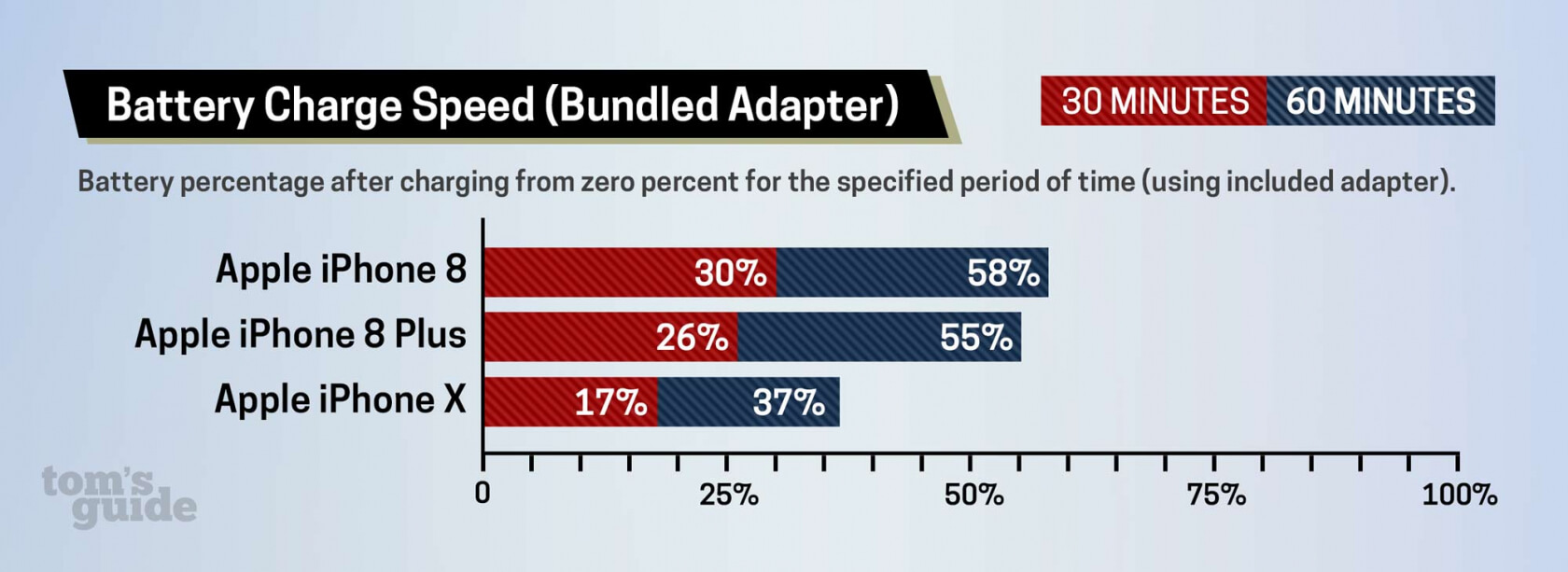
With so many flagship smartphones offering similar levels of performance and hardware, choosing one can come down to factors such as price and battery. Now, thanks to a study by Tom’s Guide, we know which handsets stand apart from the rest when it comes to charging speeds.
The tests recorded the battery life of each phone after 30 minutes and 60 minutes of charging. The handsets were turned on but the screens were off, and they started with 0 percent battery.
The fastest phone was the excellent OnePlus 5T. Its 3300mAh battery was at 59 percent after 30 minutes and 93 percent—almost full—in just an hour. The majority of critics have praised the handset, and at $499, it easily won the ‘Best Smartphone for less’ category in our Best of Smartphones feature.

While it may not be on quite the same level as flagships from Google, Samsung, and Apple, LG’s recent V30 has them beat when it comes to battery charging times. Like the OnePlus 5T, it also has a 3300mAh battery; one that reaches 53 percent after half an hour and 86 percent after an hour of charging.
Next up are the iPhones, but their positions come with a major caveat: The Android handsets were tested using their included fast charging accessories—something that isn’t bundled with the latest iPhone models. Owners of the iPhone X, 8, and 8 Plus who want to use the feature need to buy a separate 29-watt power adaptor and a USB-C to Lightning cable, which costs around $68 altogether.
Using the fast charging equipment, Apple’s handsets were comfortably ahead of the Pixel 2 (2700mAh) and Note 8 (3300mAh), with the top performing iPhone X (2716 mAh) hitting half its battery capacity in 30 minutes and 81 percent after an hour. The iPhone 8 and 8 Plus were in fourth and fifth place, respectively.
Cupertino might be pleased that it was ahead Samsung and Google, but it’s a very different story when using the iPhones’ included adaptors. The lack of fast charging means the phones drop to the bottom of the table. All of Apple’s handsets take a hit, the worst being the iPhone X. Standard charging sees it reach just 17 percent after 30 minutes and 37 percent after an hour.

Ultimately, this is a big win for the OnePlus 5T, especially as it’s around half the price of the iPhone X.
https://www.techspot.com/news/72139-fastest-charging-smartphone-list-oneplus-5t-top-iphones.html